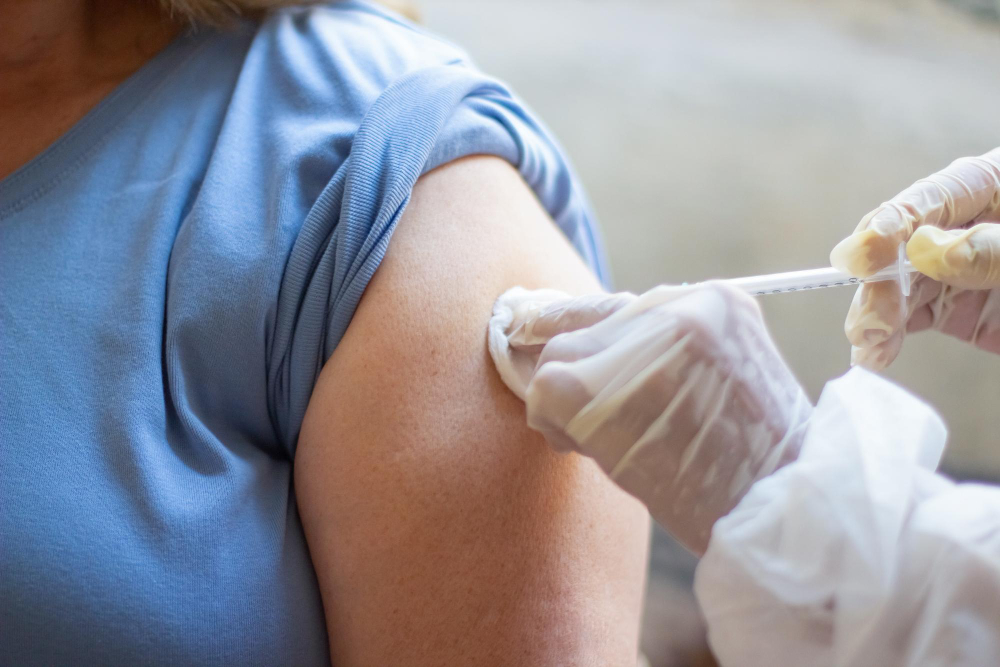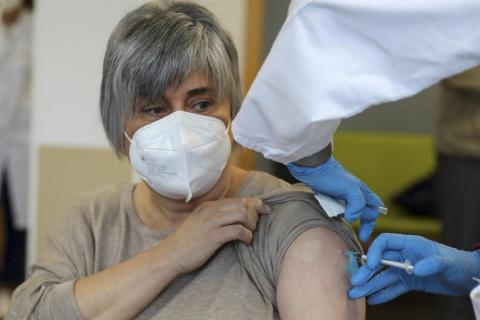Reaction: flu vaccination may cause more adverse reactions in women than in men
A meta-analysis analyzing the results of 18 clinical trials concludes that influenza vaccination may produce more adverse reactions in women than in men. According to the authors, whose research is published in the Journal of Epidemiology & Community Health, "the data suggest that most reactions are mild, self-limited, and rarely serious." "Transparent communication about the increased risk for women could help maintain long-term confidence in health authorities and vaccines," they add.

Nistal - Gripe mujeres (EN)
Estanislao Nistal
Professor of Microbiology at the Faculty of Pharmacy
The study presented here was carried out under the correct conditions and parameters of analysis, as well as the division of groups and the use of tools that make it possible to determine the variability of the results presented. The different parameters analyzed use a very large number of patients, which gives it credibility. The study focuses on comparing the reaction to vaccination against influenza viruses according to sex. The work is able to prove that the reaction to vaccination in women is greater than in men regardless of age and type of vaccine.
The study uses the term "risk of adverse effects" to name something called vaccine reactogenicity (reactions associated with vaccine inoculation). Reactogenicity is related to the activation of the patient's immune system to fight the virus, which is generally mild and transient, so using the term risk of adverse effects has a connotation that does not encompass the complexity of what is occurring.
The use of appropriate language is important so as not to misinterpret and draw the wrong conclusions from a study. Most of the symptoms described associated with vaccination are mild symptoms. In the article, the use of the expression "risk of severe symptoms" may lead to inappropriate interpretations and it would be useful to clarify what is meant.
Among the symptoms referred to in the study as severe grade 3 symptoms, such as ecchymosis, hardening, swelling at the injection site or erythema, all are transient and reversible symptoms and can be attenuated with treatment. The number of patients within the risk group with severe symptoms is also very low.
Furthermore, together with the analysis of what the article calls the risk of symptoms of whatever type, correct information must be accompanied by a fundamental value in any vaccine, the risk/benefit ratio, especially in patients at risk of developing complications associated with influenza, which in the study would be those over 65 years of age.
The data provided by the study on the greater reactogenicity in women is interesting. It is not new, but it does point to the possibility of defining parameters that would serve to ensure that the reactogenicity of the vaccine in women would not be so intense, although the degree of immunization and reaction that may accompany it and that may be necessary in men or in women for optimum protection against the virus is unknown.
As I have mentioned, it would be convenient to qualify some expressions and add some additional data to the study that would talk about the safety and effectiveness of the vaccines in the context of the reactions they produce.
Kiely et al.
- Research article
- Peer reviewed
- Non-randomized
- Observational study
- People
- Meta-analysis



